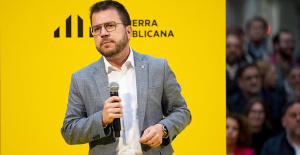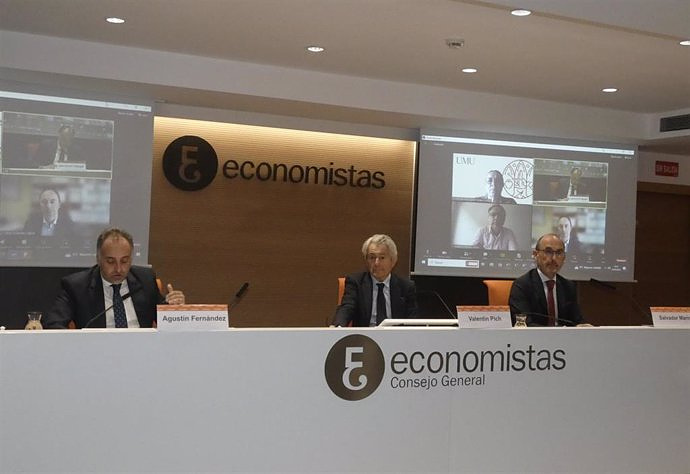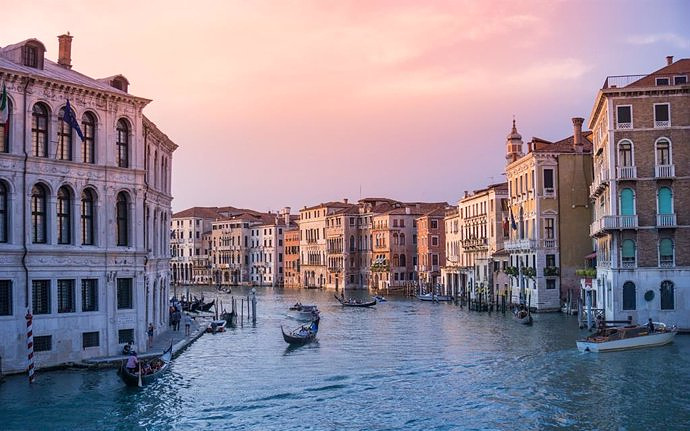The private prosecution warned that it could not be considered presented because there was a formal defect that could not be remedied.
MADRID, 1 Dic. (EUROPA PRESS) -
The judge of the National Court (AN) that is investigating the former leadership of ETA for its involvement in the kidnapping and murder of Miguel Ángel Blanco in 1997 has decided not to consider the appeal filed by the former ETA leader Ignacio Miguel Gracia as presented. Arregui, alias 'Iñaki de Rentería', against his accusation, when appreciating a formal defect that was revealed by the sister of the young PP councilor in Ermua.
In an order from this same Thursday, to which Europa Press has had access, the head of the Central Court of Instruction Number 6, Manuel García Castellón, admits the appeal presented by the private prosecution exercised by Marimar Blanco, thus correcting a ruling from the past 23 November where it was said that the challenge of 'Iñaki de Rentería' was considered presented.
Thus, the judge agrees "the reform of the order dated November 23, 2022 in the sense of inadmissible the appeal filed" by the former member of the executive committee of ETA or zuba.
Marimar Blanco warned, in an appeal signed by the lawyer Miguel Ángel Rodríguez Arias, that the challenge of Gracia Arregui before the Criminal Chamber of the AN could not be considered presented in "time and form" -as the order now prayed revoked-- because it had made a serious error that at this point is already irremediable.
This error consisted in the fact that the defense of 'Iñaki de Rentería' did not comply with the "clear legal duty" of prior transfer of his appeal to the attorney for Marimar Blanco, Elena Llarena, as established in article 276 of the LEC.
The lawyer explained, citing numerous Supreme Court and Constitutional jurisprudence, that this is an irremediable defect because on November 18 the deadline to appeal García Castellón's decision to charge the former head of ETA expired and on the 29th the legally expired set to amend this procedural ruling.
Thus, he maintained that the appeal of 'Iñaki de Rentería' should be ignored and, consequently, the order of November 10 for which he was investigated should be considered final.
García Castellón reopened the case last March after admitting a complaint from Dignity and Justice - also signed by Rodríguez Arias - that seeks to condemn those who formed the executive committee of ETA or Zuba when the crime was committed.
The judge has already called the former ETA bosses Miguel Albisu, 'Mikel Antza', to testify; María Soledad Iparraguirre, 'Anboto'; and José Javier Arizcuren, 'Kantauri'; although all of them accepted their right not to testify, the last two arguing that France has not authorized their surrender for these events.
At the request of the instructor, the Civil Guard has already issued a report in which it holds the former ETA leaders responsible for the death of the young councilor because it considers that an order from them could have prevented it.
It should be remembered that, in the case of the murder of Blanco, the National Court already sentenced in 2006 to 50 years in prison the former ETA leader Francisco Javier García Gaztelu, 'Txapote', and his sentimental partner and member of ETA Irantzu Gallastegui, 'Amaia ', as material authors.
In its ruling, the court stated that both "planned and carried out the kidnapping and subsequent murder of Miguel Ángel Blanco, following the guidelines of the leadership of the terrorist organization ETA, whose most immediate objectives were the kidnapping of a PP councilor to demand, in exchange for their release, the bringing of the gang's prisoners to prisons in the Basque Country".

 Exploring Cardano: Inner Workings and Advantages of this Cryptocurrency
Exploring Cardano: Inner Workings and Advantages of this Cryptocurrency Seville.- Economy.- Innova.- STSA inaugurates its new painting and sealing hangar in San Pablo, for 18 million
Seville.- Economy.- Innova.- STSA inaugurates its new painting and sealing hangar in San Pablo, for 18 million Innova.- More than 300 volunteers join the Andalucía Compromiso Digital network in one month to facilitate access to ICT
Innova.- More than 300 volunteers join the Andalucía Compromiso Digital network in one month to facilitate access to ICT Innova.-AMP.- Ayesa acquires 51% of Sadiel, which will create new technological engineering products and expand markets
Innova.-AMP.- Ayesa acquires 51% of Sadiel, which will create new technological engineering products and expand markets The parties open the election campaign in Catalonia
The parties open the election campaign in Catalonia Javier Tebas: "The CSD Commission does not have legal protection"
Javier Tebas: "The CSD Commission does not have legal protection" STATEMENT: Repair your Debt Lawyers cancels €65,000 in Cantabria with the Second Chance Law
STATEMENT: Repair your Debt Lawyers cancels €65,000 in Cantabria with the Second Chance Law RELEASE: Zoomlion shines at INTERMAT 2024 with a vision for a greener and smarter future
RELEASE: Zoomlion shines at INTERMAT 2024 with a vision for a greener and smarter future How Blockchain in being used to shape the future
How Blockchain in being used to shape the future Not just BTC and ETH: Here Are Some More Interesting Coins Worth Focusing on
Not just BTC and ETH: Here Are Some More Interesting Coins Worth Focusing on Retrópolis brings the golden age of video games and computing to the UPV
Retrópolis brings the golden age of video games and computing to the UPV Looking for video games that value the neighborhoods of Valencia
Looking for video games that value the neighborhoods of Valencia UPV researchers improve the efficiency of air conditioning systems using a geothermal heat pump
UPV researchers improve the efficiency of air conditioning systems using a geothermal heat pump València is committed to citiverse and smart tourism to be "the reference technological hub of the Mediterranean"
València is committed to citiverse and smart tourism to be "the reference technological hub of the Mediterranean" A million people demonstrate in France against Macron's pension reform
A million people demonstrate in France against Macron's pension reform Russia launches several missiles against "critical infrastructure" in the city of Zaporizhia
Russia launches several missiles against "critical infrastructure" in the city of Zaporizhia A "procession" remembers the dead of the Calabria shipwreck as bodies continue to wash up on the shore
A "procession" remembers the dead of the Calabria shipwreck as bodies continue to wash up on the shore Prison sentences handed down for three prominent Hong Kong pro-democracy activists
Prison sentences handed down for three prominent Hong Kong pro-democracy activists ETH continues to leave trading platforms, Ethereum balance on exchanges lowest in 3 years
ETH continues to leave trading platforms, Ethereum balance on exchanges lowest in 3 years Investors invest $450 million in Consensys, Ethereum incubator now valued at $7 billion
Investors invest $450 million in Consensys, Ethereum incubator now valued at $7 billion Alchemy Integrates Ethereum L2 Product Starknet to Enhance Web3 Scalability at a Price 100x Lower Than L1 Fees
Alchemy Integrates Ethereum L2 Product Starknet to Enhance Web3 Scalability at a Price 100x Lower Than L1 Fees Mining Report: Bitcoin's Electricity Consumption Declines by 25% in Q1 2022
Mining Report: Bitcoin's Electricity Consumption Declines by 25% in Q1 2022 Oil-to-Bitcoin Mining Firm Crusoe Energy Systems Raised $505 Million
Oil-to-Bitcoin Mining Firm Crusoe Energy Systems Raised $505 Million Microbt reveals the latest Bitcoin mining rigs -- Machines produce up to 126 TH/s with custom 5nm chip design
Microbt reveals the latest Bitcoin mining rigs -- Machines produce up to 126 TH/s with custom 5nm chip design Bitcoin's Mining Difficulty Hits a Lifetime High, With More Than 90% of BTC Supply Issued
Bitcoin's Mining Difficulty Hits a Lifetime High, With More Than 90% of BTC Supply Issued The Biggest Movers are Near, EOS, and RUNE during Friday's Selloff
The Biggest Movers are Near, EOS, and RUNE during Friday's Selloff Global Markets Spooked by a Hawkish Fed and Covid, Stocks and Crypto Gain After Musk Buys Twitter
Global Markets Spooked by a Hawkish Fed and Covid, Stocks and Crypto Gain After Musk Buys Twitter Bitso to offset carbon emissions from the Trading Platform's ERC20, ETH, and BTC Transactions
Bitso to offset carbon emissions from the Trading Platform's ERC20, ETH, and BTC Transactions Draftkings Announces 2022 College Hoops NFT Selection for March Madness
Draftkings Announces 2022 College Hoops NFT Selection for March Madness























